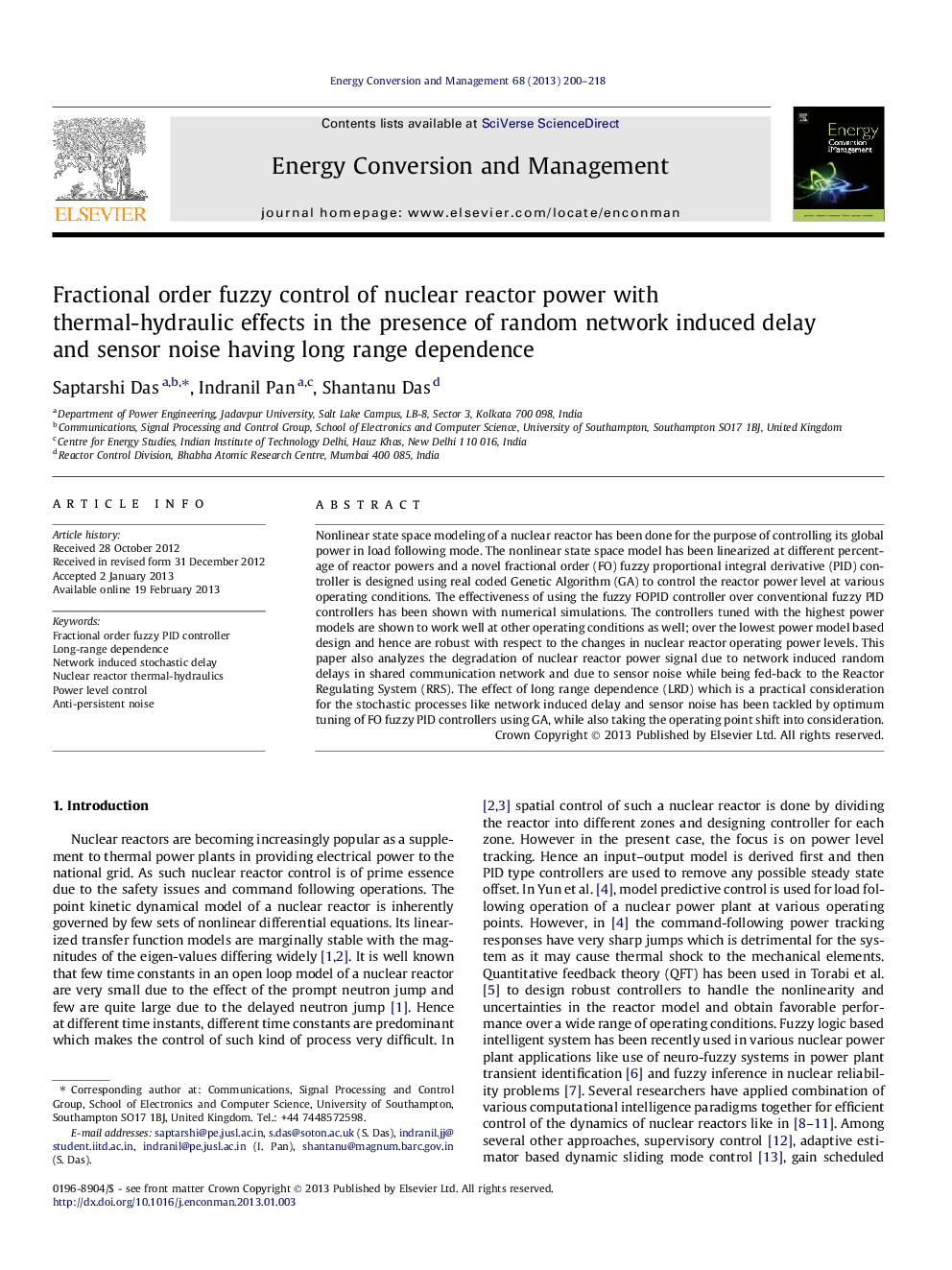| Article ID | Journal | Published Year | Pages | File Type |
|---|---|---|---|---|
| 764192 | Energy Conversion and Management | 2013 | 19 Pages |
Nonlinear state space modeling of a nuclear reactor has been done for the purpose of controlling its global power in load following mode. The nonlinear state space model has been linearized at different percentage of reactor powers and a novel fractional order (FO) fuzzy proportional integral derivative (PID) controller is designed using real coded Genetic Algorithm (GA) to control the reactor power level at various operating conditions. The effectiveness of using the fuzzy FOPID controller over conventional fuzzy PID controllers has been shown with numerical simulations. The controllers tuned with the highest power models are shown to work well at other operating conditions as well; over the lowest power model based design and hence are robust with respect to the changes in nuclear reactor operating power levels. This paper also analyzes the degradation of nuclear reactor power signal due to network induced random delays in shared communication network and due to sensor noise while being fed-back to the Reactor Regulating System (RRS). The effect of long range dependence (LRD) which is a practical consideration for the stochastic processes like network induced delay and sensor noise has been tackled by optimum tuning of FO fuzzy PID controllers using GA, while also taking the operating point shift into consideration.
► Point kinetics based state space model developed for nuclear reactor power control. ► Fuzzy FOPID is designed for power level maneuvering at various operating points. ► Input–output SFs and integro-differential operators are optimally chosen with GA. ► Self-similar network delay and sensor noise are considered in reactor control loop. ► Controller design at full power and anti-persistent noise works best in all cases.
